BY EMMANUELLE SIMON
RAKU YAKI CERAMIC
POLISHED MIRROR BRASS HANDLE
BLACKENED ASSAMELA SOLID WOOD BASE AND INTERIOR
| IN | H | 52.8 | L | 41.7 | D | 21.6 |
| CM | H | 134 | L | 106 | D | 55 |
MADE IN FRANCE
DETAILS
BIOGRAPHY
DOWNLOAD PRODUCT INFO
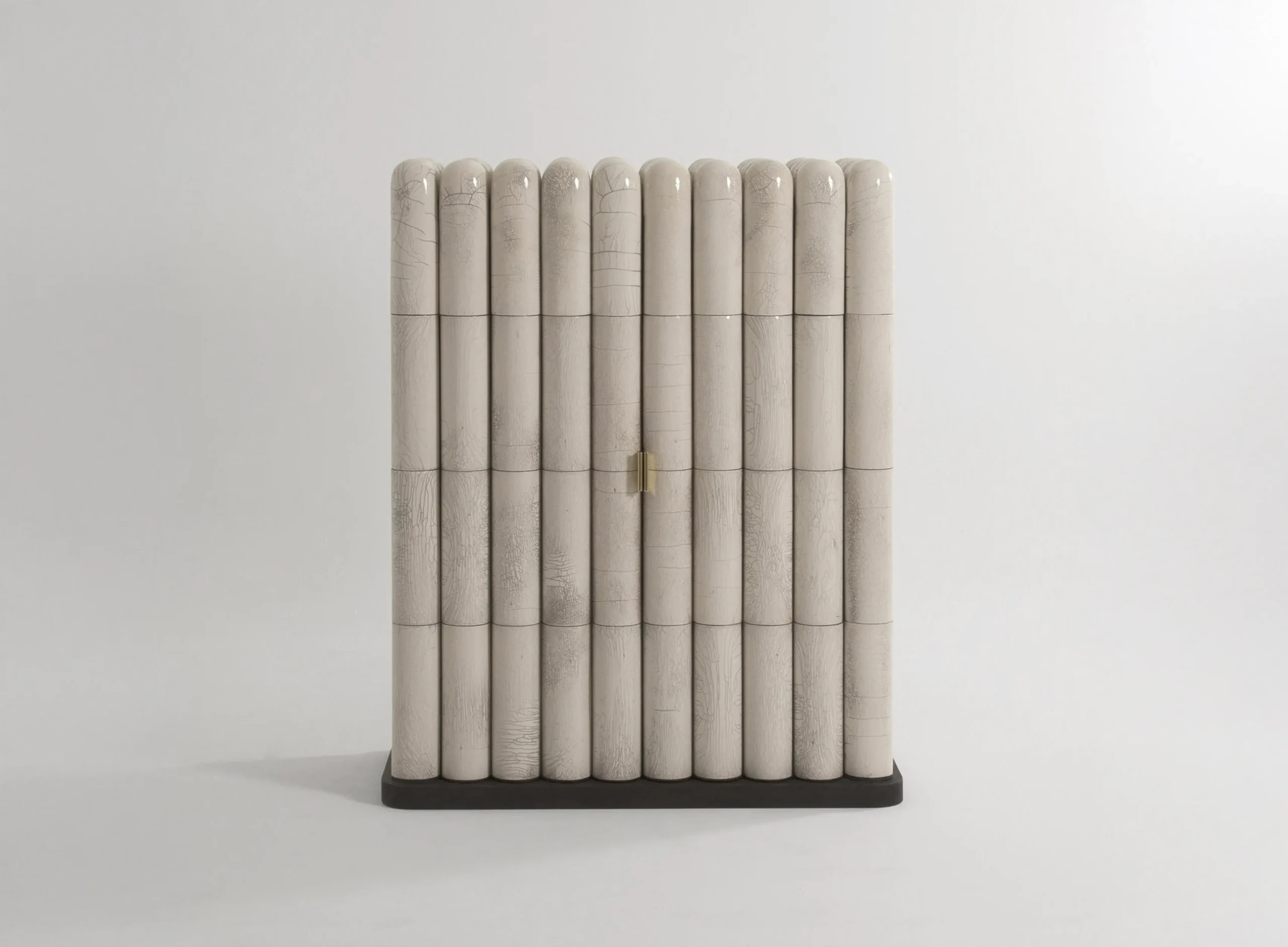
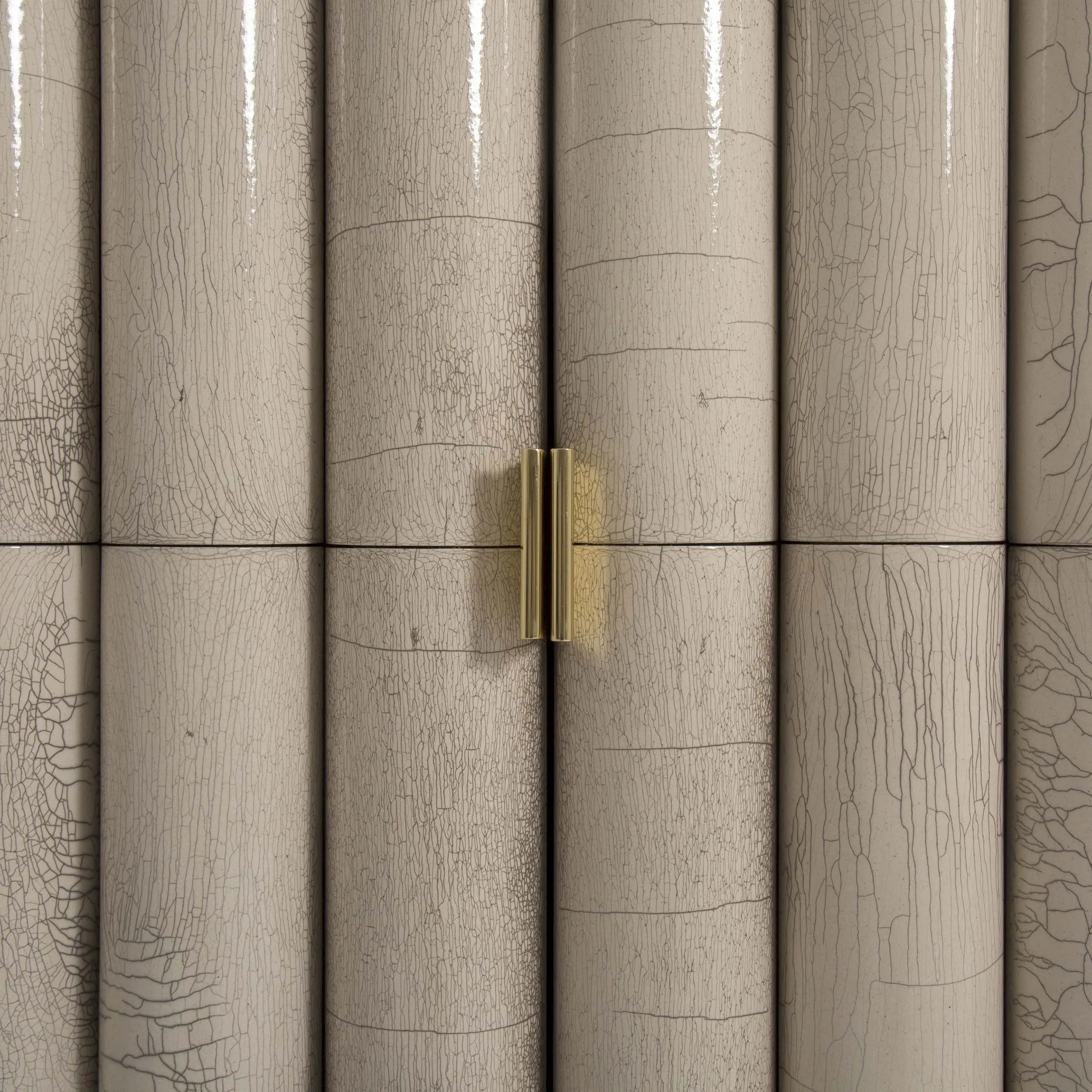
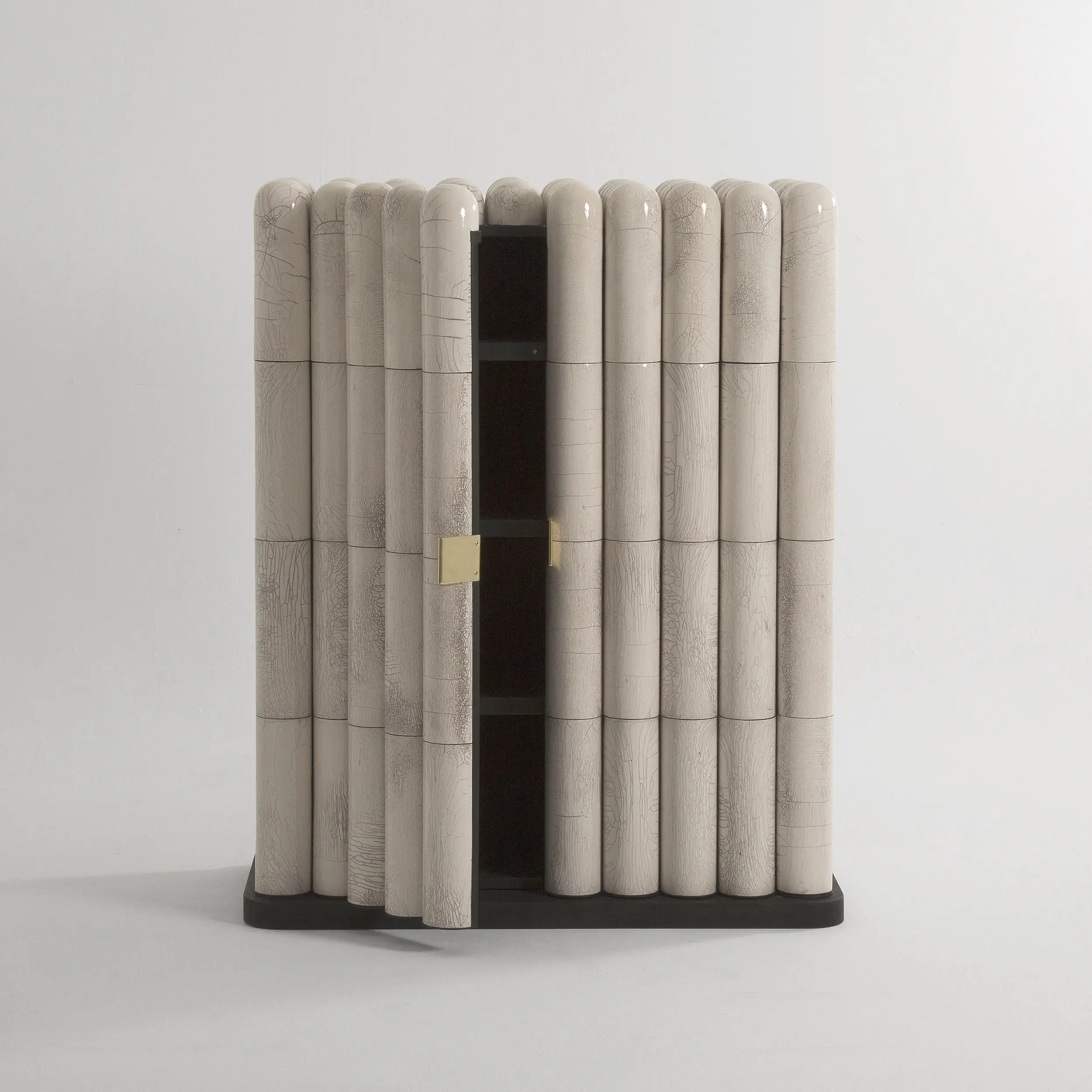
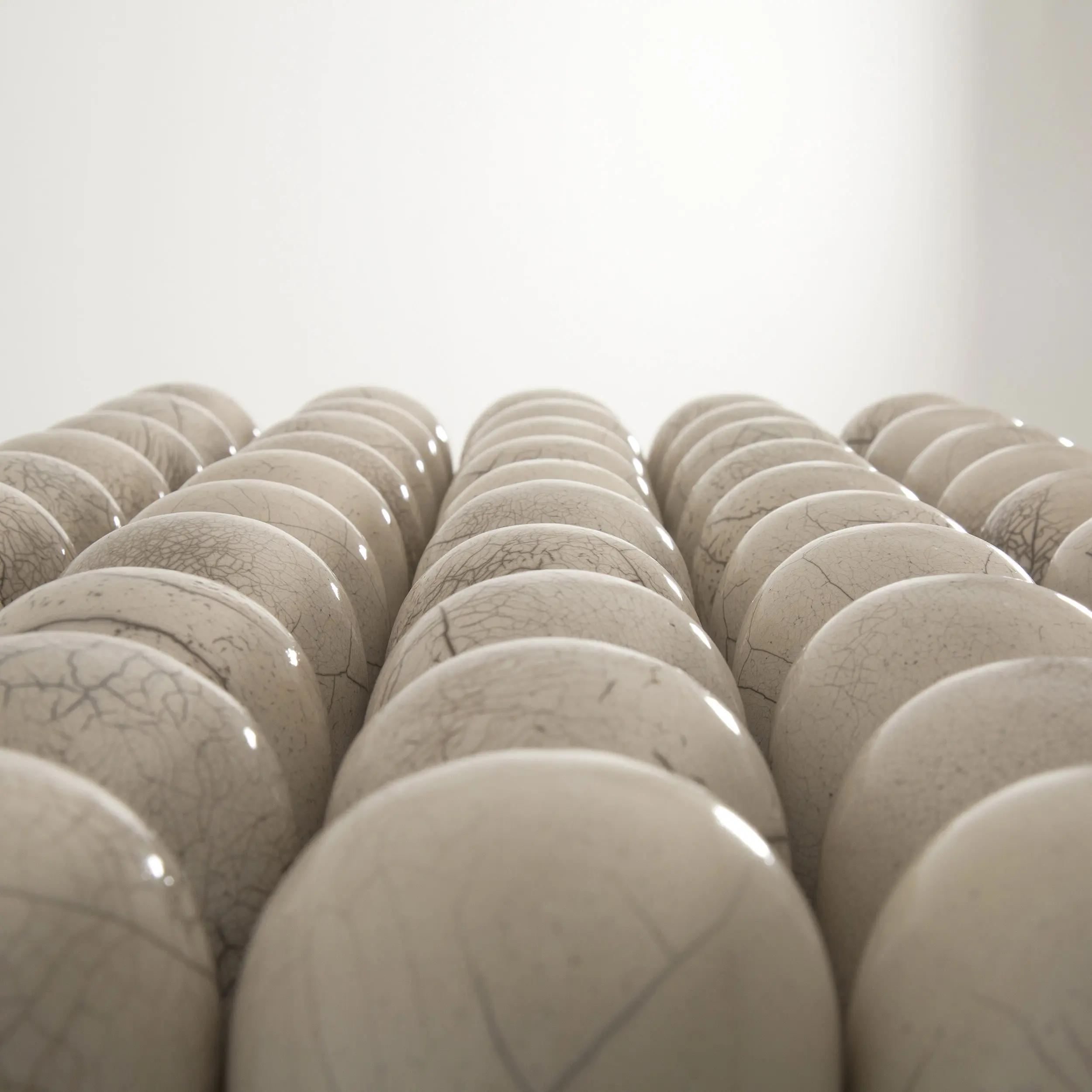
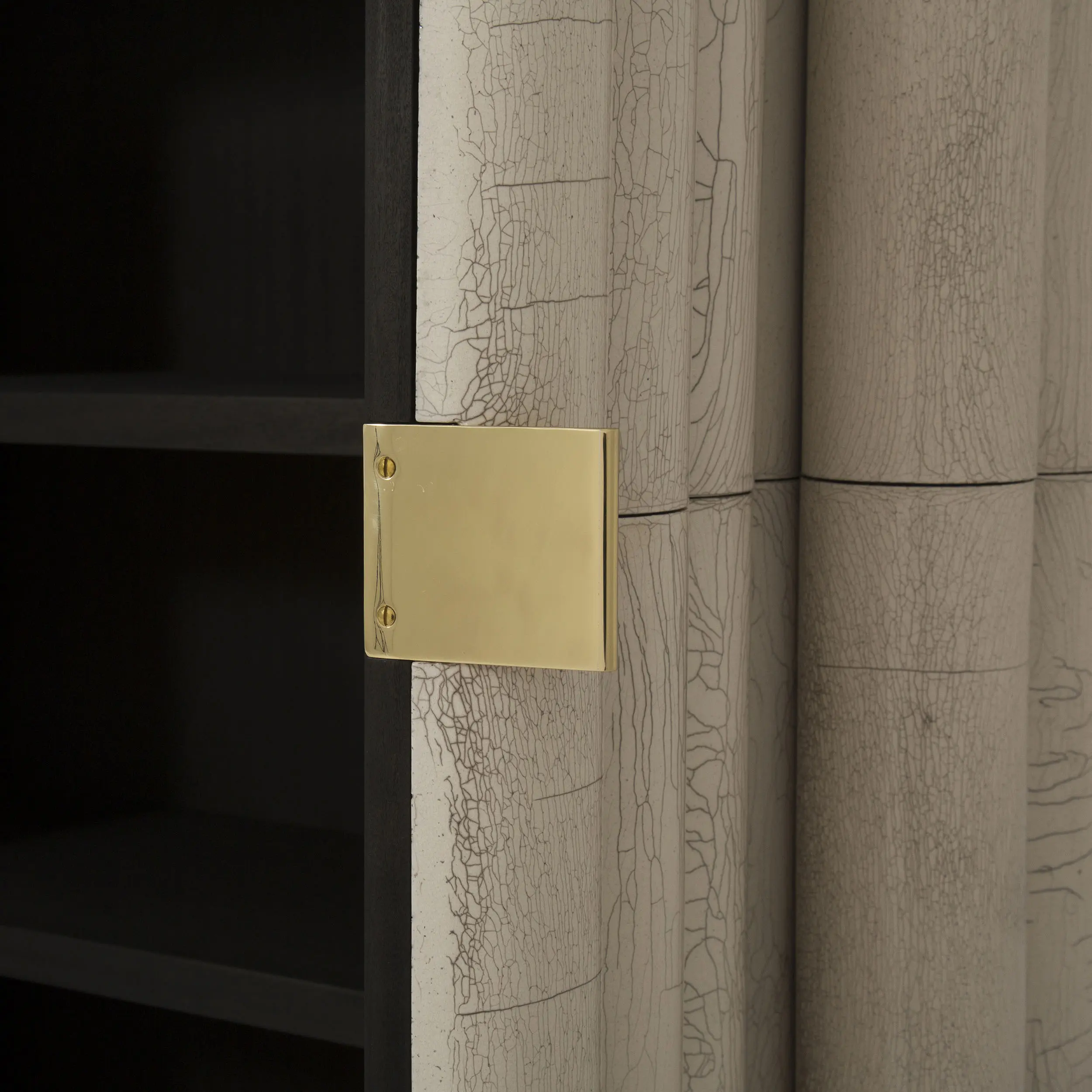
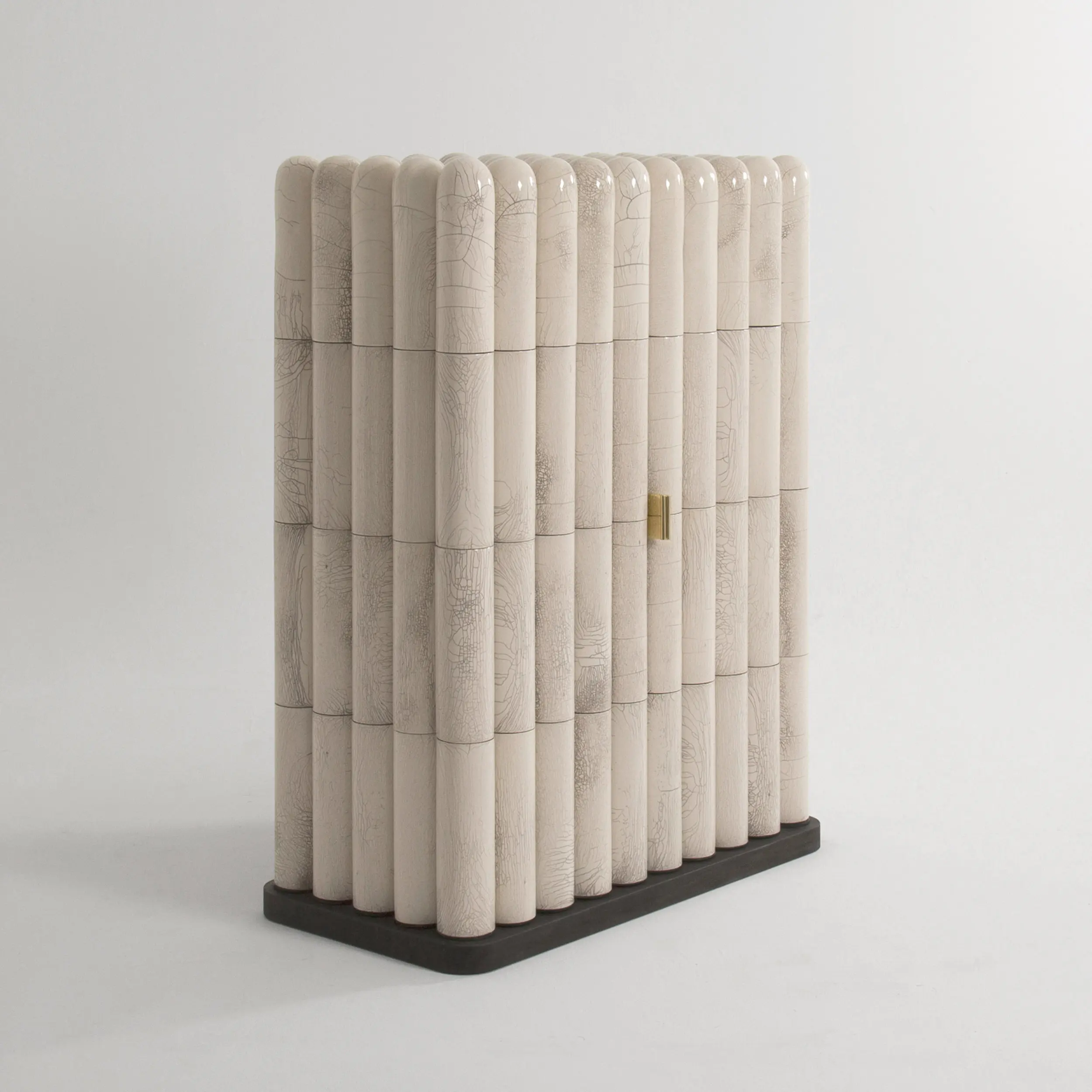
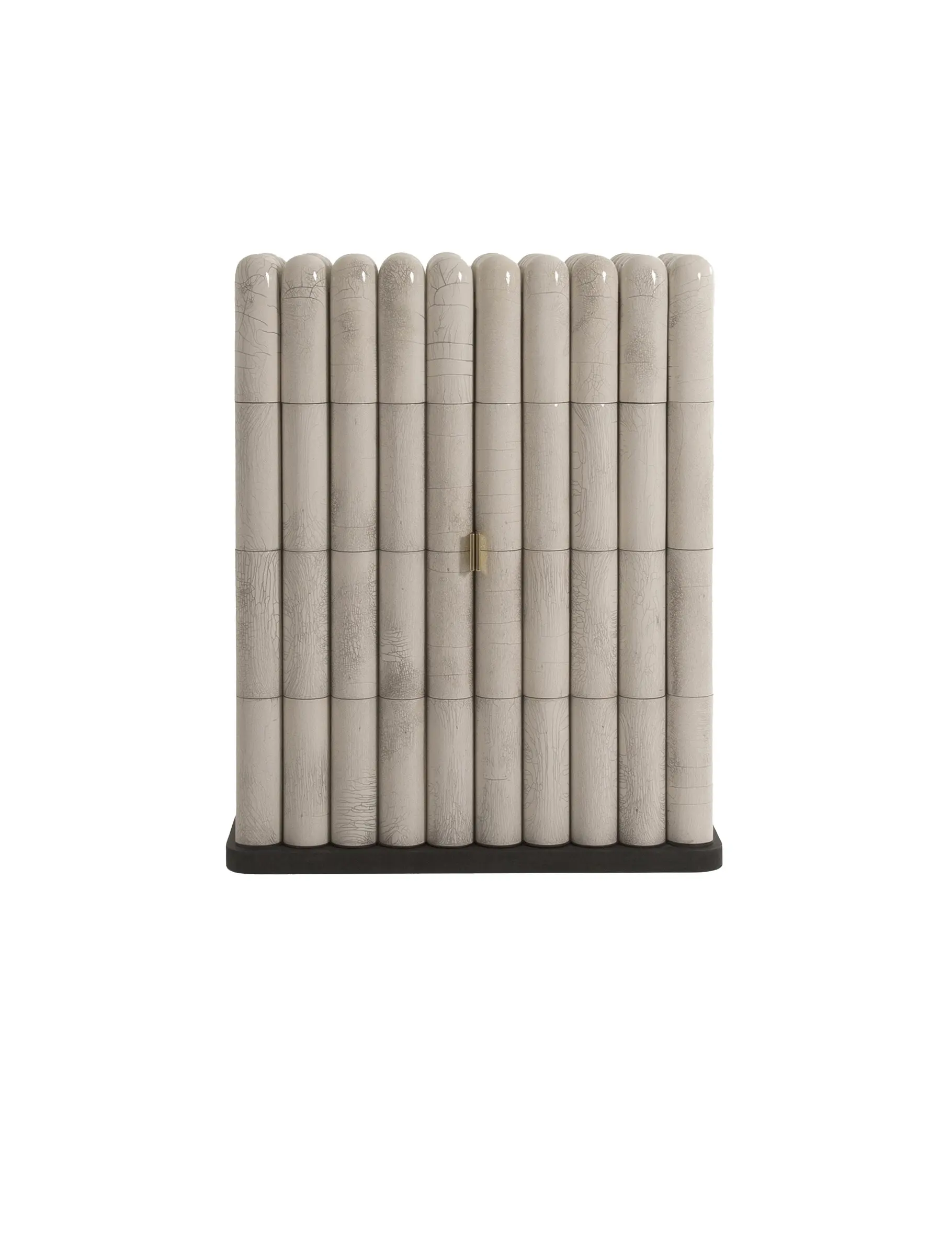
RAKU YAKI CERAMIC
POLISHED MIRROR BRASS HANDLE
BLACKENED ASSAMELA SOLID WOOD BASE AND INTERIOR
| IN | H | 52.8 | L | 41.7 | D | 21.6 |
| CM | H | 134 | L | 106 | D | 55 |
MADE IN FRANCE
DETAILS
BIOGRAPHY
DOWNLOAD PRODUCT INFO






STUDIOTWENTYSEVEN
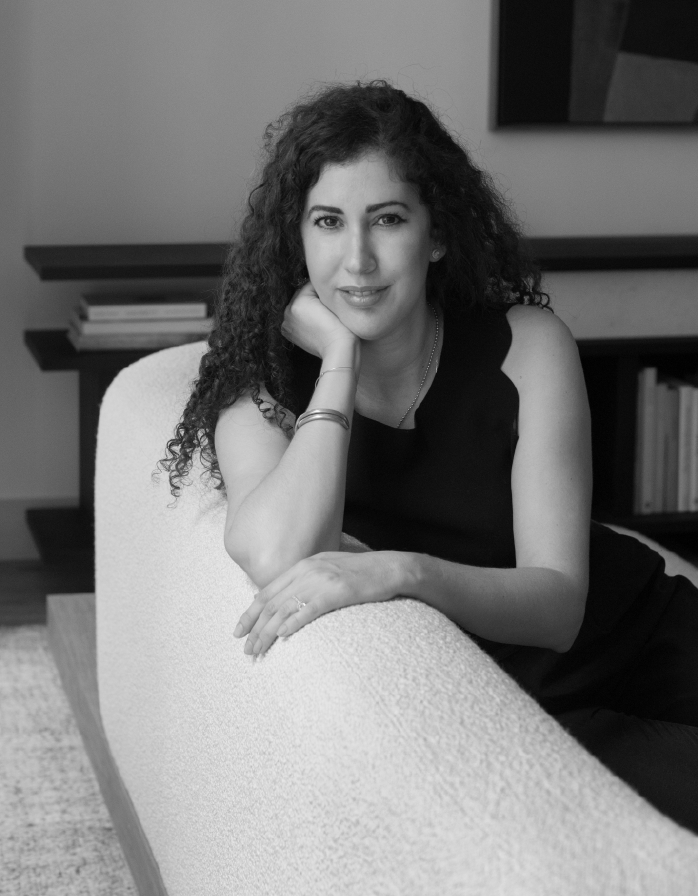
Emmanuelle Simon
Born France, 1988
A French-Israeli architect and designer, Simon composes immaculately curated, resolutely modernist pieces that reflect her heightened sense of refinement, keen eye for detail, and passion for craftsmanship. Drawing on Art Deco style and Wabi-Sabi philosophy, she exposes the raw beauty of materials with her precise, sophisticated, and simple designs. With a singularly detail-oriented aesthetic, Simon uses space and light to mold volumes and highlight textures with a poetic economy of design
A graduate of École Camondo, Simon worked with Pierre Yovanovitch before founding her own studio in 2017, winning the Prix Special du Public at Design Parade that same year. In 2019, she was named as one of the “100 Designers of the Year” by Architectural Digest
STUDIOTWENTYSEVEN
Raku Yaki Buffet Cabinet
Honoring the Wabi-Sabi aesthetic tradition that finds beauty in imperfection and impermanence, Emmanuelle Simon’s Raku Yaki collection brings a serene contemporary sensibility to the ancient Japanese ceramic technique of Raku
Dating back over four hundred years, the unusual Raku process subjects ceramic to extreme stress with high heat and rapid cooling to create dramatic and singular surface variations of the glaze. This crackled finish serves as a stunning counterpoint to the geometric Art-Deco inspired form of the cabinet’s exterior
The Buffet Cabinet is a uniquely monumental form that highlights, by contrast, the delicate and ethereal quality of the Raku ceramic finish. Resembling both a palatial monolith and a fragile bale of ceramic pillars precariously balanced on end, the exterior invites contemplation on wholeness and fragmentation. The elliptic topography of the cabinet’s top exudes a playful sensuality along with a reverence for tradition, resembling overturned teacups that recall Raku Yaki’s ancient origins. That pearlescent, ethereal ceramic stands in stark relief to the rich and earthy blackened Assamela solid wood that forms the base and three interior shelves. Polished mirror brass handles add a discreet hint of opulence to this elegant and ruminative sideboard
STUDIOTWENTYSEVEN